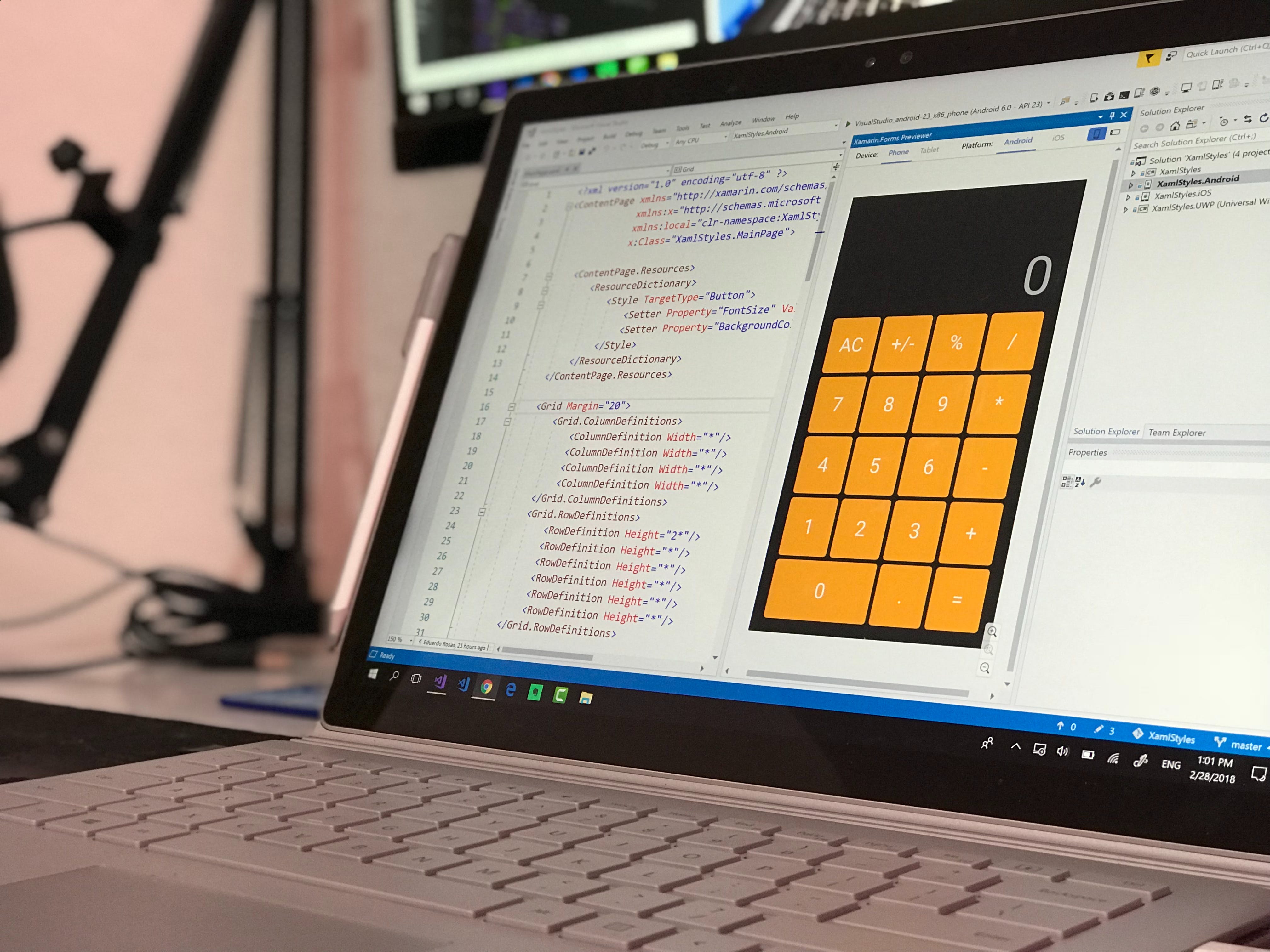The realm of front-end development has been a hot topic of discussion, particularly on platforms like Reddit where tech enthusiasts and professionals debate its relevance and future. With the rapid evolution of web technologies and the increasing demand for interactive and responsive user interfaces, the role of a front-end developer has become more critical than ever. However, the question ‘is front-end development dying?‘ sparks intense conversation and speculation within the community.
Front-end development encompasses the creation of the client-side part of a website or application, which users directly interact with. It involves using languages like HTML, CSS, and JavaScript to construct engaging layouts, design intuitive navigation, and implement dynamic features that enhance the user experience. As technologies advance, front-end developers are now also expected to be adept with frameworks and libraries such as React, Angular, or Vue.js, which facilitate the development of sophisticated applications.
Despite these advancements, the debate rages on Reddit, with some arguing that the rise of no-code and low-code platforms could potentially diminish the need for traditional front-end development skills. Others contend that these tools simply cannot match the customizability and performance of hand-coded solutions crafted by experienced developers. Hence, rather than facing obsolescence, front-end development may be evolving to embrace new tools and methodologies that will continue to shape the digital landscape.
At Biz4Solutions, we understand the importance of staying at the forefront of technology trends. Our expertise in custom software development ensures that we provide cutting-edge solutions that cater to the specific needs of businesses, helping them stay competitive in a constantly changing digital environment.
The Reddit Perspective on Front-End Development

Reddit, a platform known for its vibrant and diverse community, serves as a battleground for debates on a multitude of topics, including the current and future state of front-end development. Enthusiasts, professionals, and novices alike flock to various subreddits to voice their opinions, share experiences, and forecast trends. These discussions provide a plethora of perspectives that range from doomsday predictions about the end of front-end roles to affirmations of the field’s growing importance in the tech industry.
One common thread in these debates is the impact of emerging technologies. Some Redditors argue that advancements in AI and automation tools could streamline or even replace certain front-end tasks. However, others quickly point out that while these tools can aid development, they lack the nuanced understanding of user experience that a human developer brings to the table.
Another point of contention is the saturation of the job market. With coding bootcamps and online courses churning out new developers, some Reddit users suggest that the market is becoming overly crowded, potentially driving down demand and salaries for front-end developers. Yet, optimists counter that the explosion of digital platforms and the need for personalized web experiences is actually expanding job opportunities.
As the conversation unfolds, it becomes evident that the Reddit community is deeply invested in the fate of front-end development. The discourse is a testament to the field’s dynamism and the passionate professionals who continue to shape its future.
Evolving or Dying: The Front-End Development Dilemma
The question of whether front-end development is evolving or dying is a dilemma that has sparked numerous conversations within the tech community. This debate is not merely academic; it has real implications for developers, businesses, and the way we interact with the web. The rapid pace of technological change has led some to believe that traditional front-end roles are becoming obsolete. They cite the rise of no-code and low-code platforms that enable even those without formal programming training to create websites and applications as evidence of this obsolescence.
On the flip side, many industry experts assert that front-end development is not dying but instead is undergoing a significant evolution. The role of the front-end developer is being redefined by the need to integrate new technologies like voice recognition, augmented reality, and progressive web apps into user interfaces. This evolution demands developers to acquire a broader skill set, including familiarity with frameworks such as React, Angular, and Vue.js, as well as a keen understanding of user experience and design principles.
Moreover, the push towards creating more dynamic, responsive, and personalized user experiences has increased the complexity of front-end development work. As businesses strive to stand out in a crowded digital landscape, the expertise of skilled front-end developers in crafting intuitive and engaging interfaces is more valuable than ever. Rather than dying, the field is adapting to the demands of an internet-of-everything era, ensuring that front-end development remains a critical component in the creation of digital products.
Technological Advancements Impacting Front-End Developers

Technological advancements have a profound impact on the landscape of front-end development. Emerging technologies are reshaping the role and responsibilities of front-end developers, compelling them to adapt to new tools and methodologies. Among the most influential of these technologies are frameworks like React, Angular, and Vue.js, which have simplified the process of building interactive and high-performing user interfaces.
Furthermore, advancements in artificial intelligence and machine learning are beginning to make their way into front-end development. AI-powered tools can now automate repetitive tasks, optimize user experience through personalization, and even assist in making design decisions, thereby increasing efficiency and enabling developers to focus on more complex problems.
Another key technological trend impacting front-end developers is the widespread adoption of responsive web design. As the variety of device form factors continues to expand, developers must ensure that websites are accessible and provide a seamless experience across all devices, from desktop computers to smartphones and beyond. This requires a deep understanding of responsive design principles and the ability to implement them effectively.
The rise of progressive web apps (PWAs) also illustrates the evolving nature of front-end development. PWAs use modern web capabilities to deliver an app-like experience, and front-end developers are at the forefront of integrating these features to create superior web applications that work offline and perform well on low-quality networks.
In summary, technological advancements are not spelling the end for front-end development; rather, they are expanding the scope of what front-end developers can achieve, pushing the boundaries of user experience and interface design.
Industry Experts Weigh In on the Front-End Debate

The debate concerning the future of front-end development has attracted the attention of numerous industry experts, who have offered their insights and predictions. One common sentiment among these professionals is that front-end development is not dying, but rather evolving. Experts emphasize that the demand for skilled front-end developers remains high, particularly for those who continuously learn and adapt to new technologies.
Many experts agree that the core of front-end development—creating the user-facing part of the web—is here to stay, but the tools and practices are shifting. The rise of serverless architectures, static site generators, and headless CMS technologies are changing the way front-end developers work. These advancements allow developers to build faster, more secure, and scalable websites, which in turn, enhance the end-user experience.
Industry leaders also point to the importance of understanding user experience (UX) and user interface (UI) design principles. As websites and web applications become more complex, the expertise of front-end developers in crafting intuitive and engaging interfaces becomes increasingly valuable.
Moreover, some experts note the convergence of front-end and back-end development, with the advent of full-stack development. However, they also recognize that specialization in front-end development remains crucial, especially in larger teams where the depth of knowledge in specific areas can be critical to a project’s success.
Ultimately, industry experts advocate for a balanced view, recognizing that while the tools and frameworks may change, the fundamental need for front-end development skills will persist as long as there are interfaces that users interact with.
The Future of Front-End Development: Trends to Watch

As we delve into the future of front-end development, several trends stand out as potential game-changers. Artificial Intelligence (AI) and Machine Learning (ML) are beginning to play a significant role, with automated coding and AI-driven design expected to streamline development processes. Additionally, the increasing adoption of Progressive Web Apps (PWAs) highlights a shift towards applications that provide a native-like experience across all devices.
Another trend gaining momentum is the use of Component-Driven Development (CDD), which enables developers to build reusable and scalable components, thereby increasing efficiency and consistency across projects. Moreover, the integration of motion UI to create more dynamic and engaging user experiences is becoming more prevalent.
The rise of JavaScript frameworks, such as Vue.js, React, and Angular, is also noteworthy. These tools continue to evolve, offering more robust solutions for building complex applications. Consequently, developers need to keep pace with these frameworks to remain competitive in the industry.
Accessibility and inclusivity in web design have become more than just ethical considerations; they are now legal requirements in many jurisdictions. Ensuring that websites are accessible to all users, regardless of their abilities, is a critical aspect of modern front-end development.
Are You Interested in Building a Top-Class Website or Mobile App?
In conclusion, while the field of front-end development is undergoing significant changes, it is far from dying. To stay ahead in this dynamic landscape, embracing continuous learning and adapting to these emerging trends is essential. For those looking to enhance their digital presence with the latest front-end technologies, Biz4Solutions offers comprehensive software services to meet diverse industry needs and ensure sustainable business growth.
